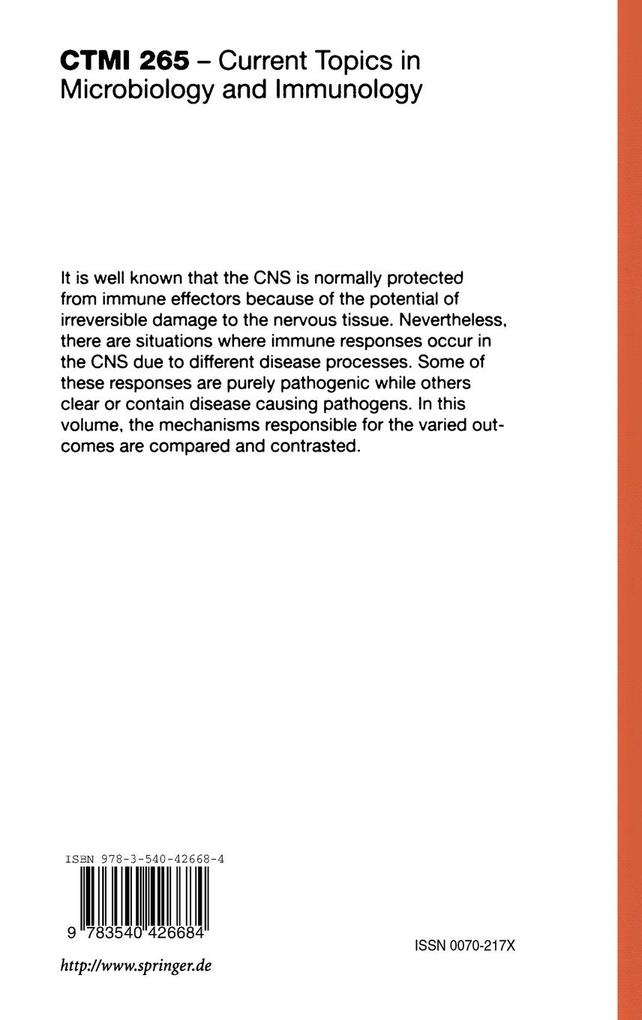It is well known that the CNS is normally protected from immune effectors because of the potential of irreversible damage to the nervous tissue. Nevertheless, there are situations where immune responses occur in the CNS due to different disease processes. Some of these responses are purely pathogenic while others clear or contain disease causing pathogens. In this volume, the mechanisms responsible for the varied outcomes are compared and contrasted.
Inhaltsverzeichnis
List of Contents. - Hierarchy of Immune Responses to Antigen in the Normal Brain. - Cytokines and Chemokines as Mediators of Protection and Injury in the Central Nervous System Assessed in Transgenic Mice. - Cytokines in Degenerative Brain Diseases: Lessons from Transgenic Animals. - Innate Immune Responses in Viral Encephalitis. - Apoptosis in Viral Infections of Neurons: a Protective or Pathologic Host Response? . - Markers of Central Nervous System Glia and Neurons In Vivo During Normal and Pathological Conditions. - The Role of T Cells in Brain Pathology. - Immunopathology and Immunoprotection in CNS Virus Infections: Mechanisms of Virus Clearance from the CNS. - HIV-1 and the Central Nervous System. - HTLV-1-Mediated Immunopathological CNS Disease. - Listeria monocytogenes: a Model System to Study Invasion and Spread of Bacteria in the Central Nervous System. - Parasites and the Brain: Neuroinvasion, Immunopathogenesis and Neuronal Dysfunctions. - Immune Responses in Glioblastoma: an Avenue to Effective Cancer Therapy or a Mere Epiphenomenon? .











